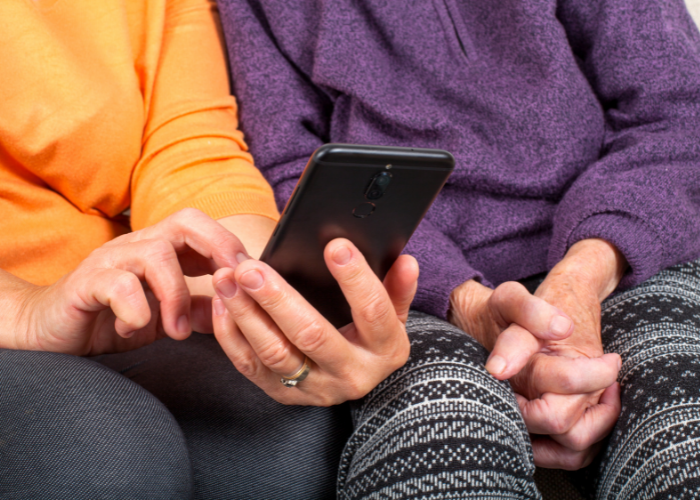For Public Service Recognition Week and beyond we are highlighting the hard work of public servants across federal, state, and local governments. Join us in celebrating how their efforts make each day #GovPossible!
In government, teams are behind much of the great work accomplished every single day. Today we are highlighting a mighty team of three from California’s Office of Digital Innovation (ODI). In 2021, this incredible team worked with the California Public Utilities Commission (PUC) to learn from Californians applying for the Emergency Broadband Benefit (EBB) program, which provided a temporary discount on monthly broadband bills during the COVID-19 pandemic for qualifying low-income households.
The ODI team decided to perform user experience research to understand the mental models of Californians applying for the Federal EBB program and what roadblocks might prevent them from successfully submitting the application. Their findings led to direct action from policymakers and made the program better as a result. The group of professionals who worked on this project each came with a different background and skill set, that when combined created the perfect team to accomplish a #GovPossible task.
The Team
Let’s meet this team of public servants who helped Californians gain discounted internet through the EBB program.
Anne Neville-Bonilla was the Chief Deputy Director of ODI at the time of the project and brought expertise in broadband policy.
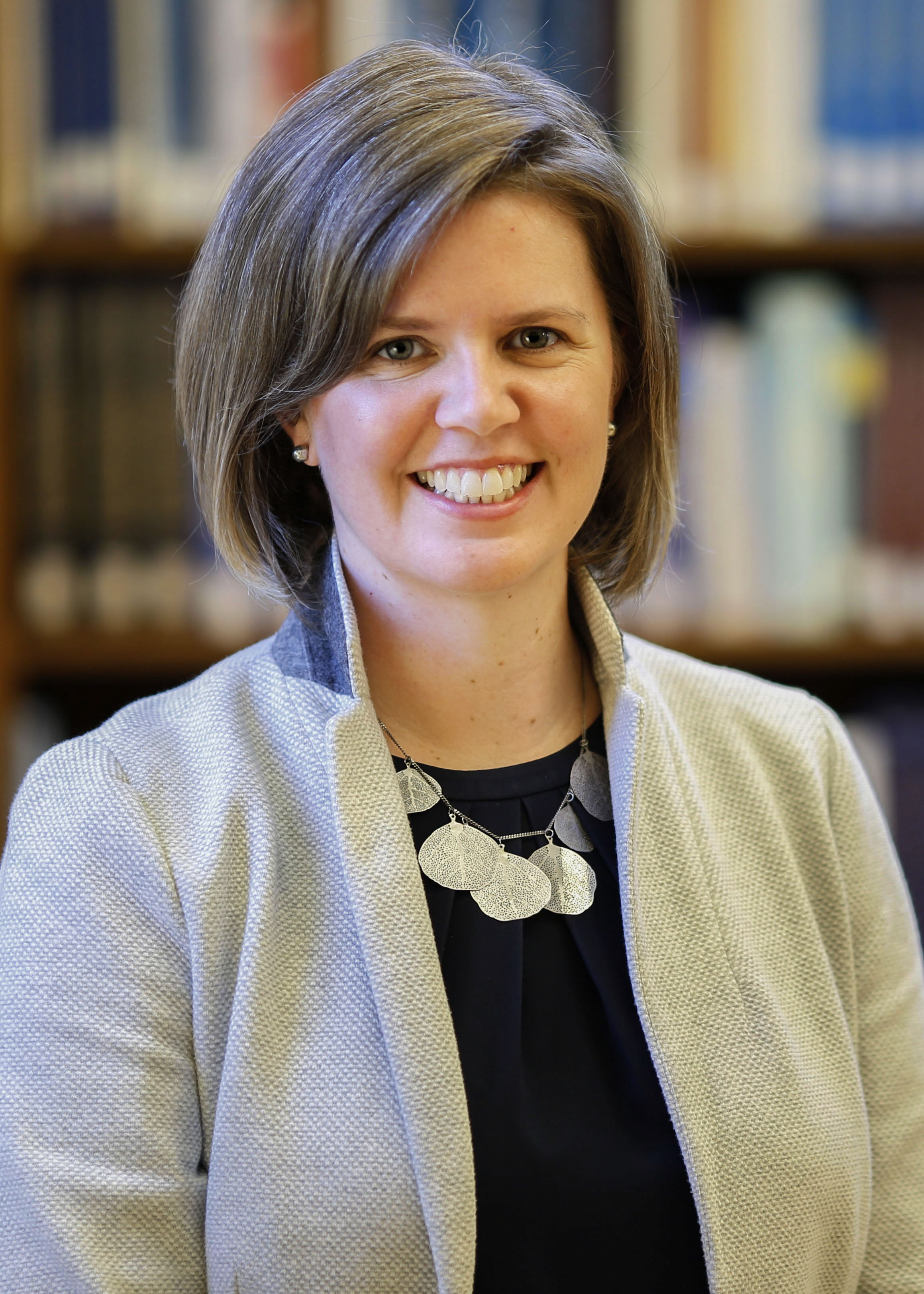
Anne’s public service superpower is coalition building.
Justin Lai was the team’s User Experience Researcher who spent countless hours speaking to Californians and helping them apply for the EBB program.
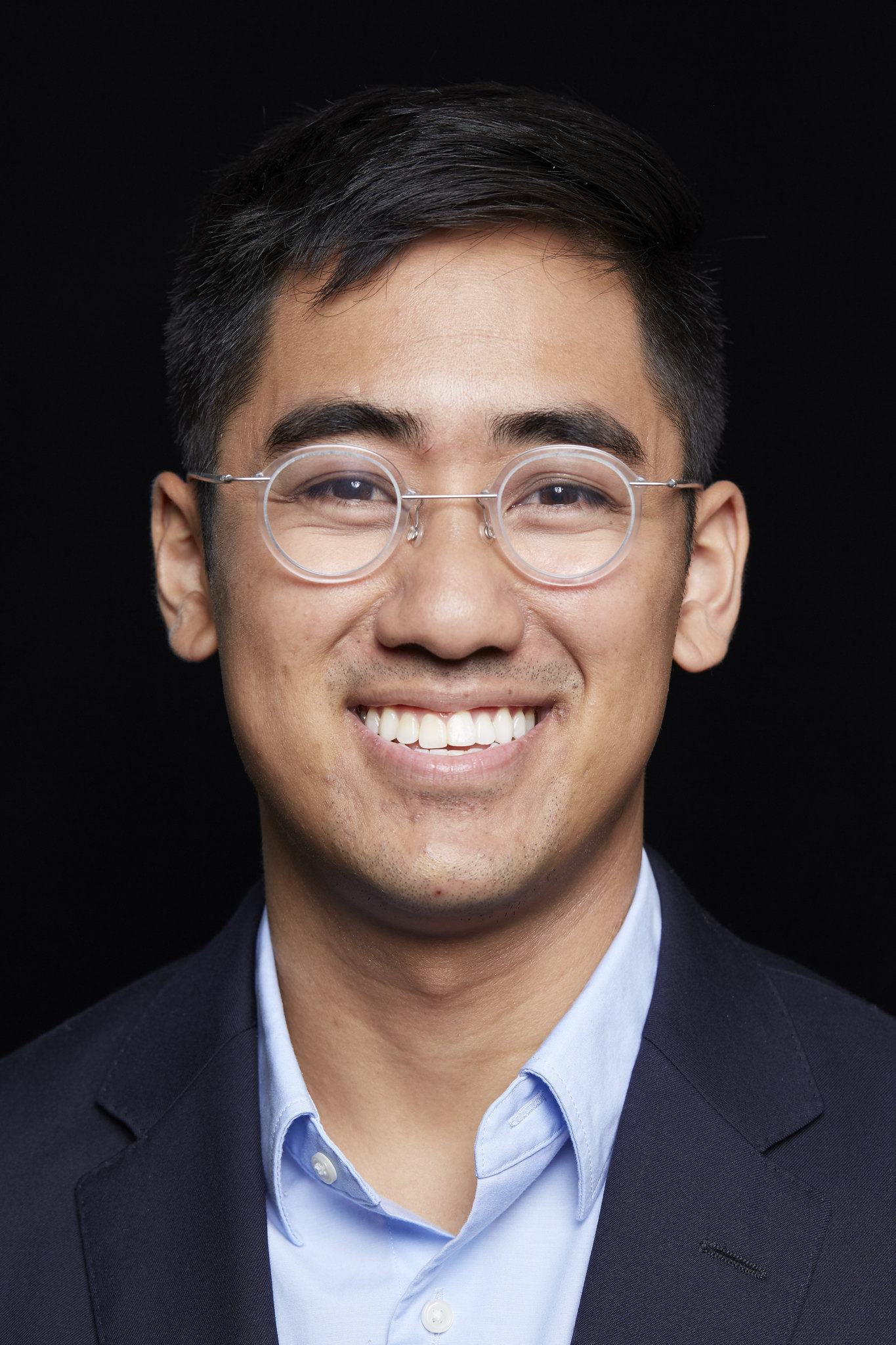
Justin’s public service superpower is persistence.
Dave Guarino was an ODI Product Lead and brought his service-first approach and tactics to the project.
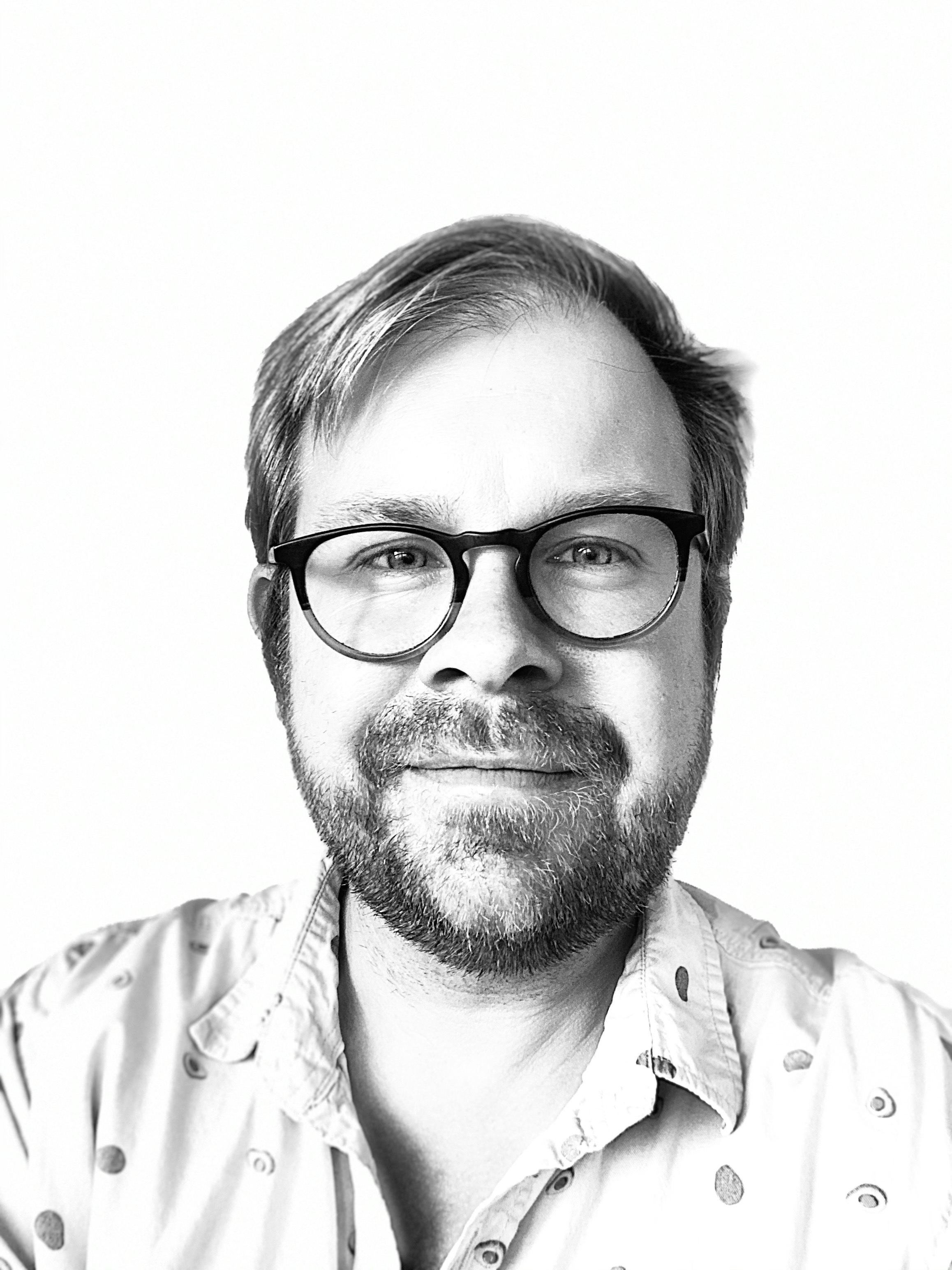
Dave’s public service superpower is clarity of purpose and a show-don’t-tell mindset.
These three public servants used the EBB program as an opportunity to learn from Californians directly, so that they could apply their findings to future broadband policy and projects.
The Project's Unique Approach
The team set out to accomplish two goals with this project.
- Understanding the barriers people applying for the EBB program faced as they completed the initial application.
- Helping those same people on the spot to complete the EBB application and answering their questions as they encountered obstacles.
They came up with these goals by working collaboratively with different state and federal stakeholders. Anne initiated a discussion with PUC leadership focusing on what California could do - and specifically how ODI might help - given that EBB was a federal program. Both the PUC and ODI knew that like any new program that had to be stood up quickly, there might be speedbumps – the question was how to identify them. The idea of learning directly from Californians as they applied to the program took root quickly and the team got started.
ODI was already running California’s Covid-19 response site, covid19.ca.gov, and had intentionally built it in a way that made it very easy to add or remove new content. The team was able to leverage this, and, in coordination with the PUC, Dave and Anne quickly created a landing page where people could learn about eligibility and how to apply for the program.
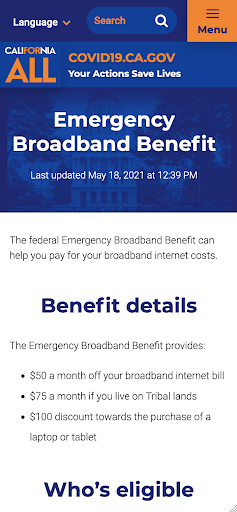
The team created this landing page for EBB.
Dave had the idea to use Google Ads to successfully reach potential target audiences for the EBB program and direct them to covid19.ca.gov. If someone in California searched for “low-cost internet” or similar phrasing, they would be targeted with an advertisement like the one pictured below.
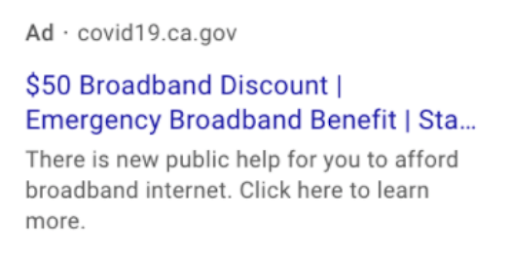
Google Search ads helped with digital outreach to Californians.
Once on the site, users received a prompt where they could leave questions or comments about the application process. Justin then followed up within 48 hours and spoke directly with anyone who requested assistance.
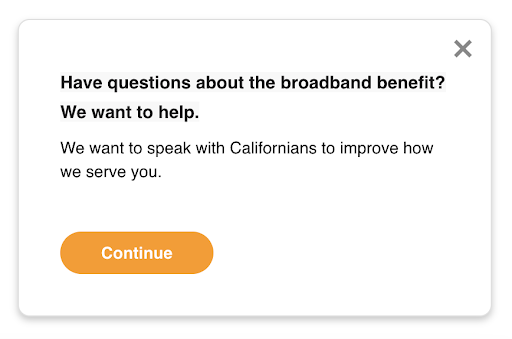
This “intercept” was shown to users on the California EBB landing page to get to a conversation.
Justin spoke to Californians for weeks on end to understand what obstacles they encountered when trying to apply for the benefit. Conversations were as short as a couple of minutes or as long as 1.5 hours. Some participants only had high level questions while others wanted to walk through the entire process step by step.
Hearing directly from Californians about their challenges and helping them successfully apply for the benefit was very rewarding for the ODI team. The process enabled the team to accomplish both of the two goals they set out to achieve at the start of their research.
The #GovPossible Outcome
Even more rewarding were the longstanding relationships the team formed with participants throughout this research project. From a woman in a rural area who relied on her phone for the internet, to a family struggling to receive internet discounts for years, the team was able to learn from and help these Californians get broadband. They even helped the same family with new questions once a more permanent program came into place months later.
“These longstanding relationships have been really great for us in terms of seeing not only their experiences in a specific moment of time, but really seeing over a span of months what kind of impact these programs have,” Justin shared.
For the team, the outcome was not only hearing from individuals in the moment about their frustrations and challenges, but also translating those issues into specific, feasible, and actionable recommendations.
ODI shared their research findings with the California PUC team, who then contacted the Federal Communications Commission (FCC). After conversations with the PUC and ODI, the FCC made six updates to the EBB application, such as making the password creation fields more mobile-friendly, in response to what ODI had learned from Californians.
This small but mighty team of public servants was able to make a big impact. Not only did they help Californians gain internet access, but their findings and recommendations helped make the process smoother for future applicants on a national scale.
In fact, their research outcomes continue to help improve the user experience for applicants to the new and more permanent version of EBB, the Affordable Connectivity Program.
Learn More
To learn more about ODI’s project, check out the state of California’s blog post.
Learn more about the Affordable Connectivity Program and view the application guidelines.
Celebrate #GovPossible with us by following along as we celebrate public servants on Twitter and LinkedIn.


